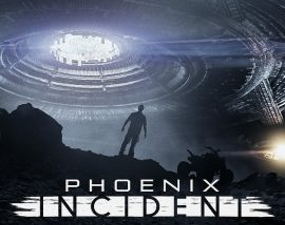Last winter I posted here about being on the editorial board for Springer Publishing’s new line of books, Science and Fiction, looking to bring the two topics together in various ways. The project has continued since then, and the Springer editors and the editorial board, have a set of books in production. The first four books have now been published. One of them I actively helped evaluate (the non-fiction book below), and I contributed comments about acquiring the others (one or two of the scientific novels). I’ve been involved in acquiring another, and the series continues.
I wanted to say a bit about the books that are now out and bring them to your attention. They’re available as paperbacks and ebooks, and at other sellers like amazon.com and the usual suspects.
Luokkala, Barry B
- Covers a breadth of topics in the sciences, and draws examples from over 100 years of science fiction film, as well as television
- Includes an appendix of films cited, with information about the science concepts illustrated by each one
- Serves as a useful reference for anyone who wants to use examples from sci-fi to illustrate a variety of science concepts
- Includes numerical examples and solutions referencing many of the cited science fiction sources
How does Einstein’s description of space and time compare with Dr. Who? Can James Bond really escape from an armor-plated railroad car by cutting through the floor with a laser concealed in a wristwatch? What would it take to create a fully-intelligent android, such as Star Trek’s Commander Data? How might we discover intelligent civilizations on other planets in the galaxy? Is human teleportation possible? Will our technological society ever reach the point at which it becomes lawful to discriminate on the basis of genetic information, as in the movie GATTACA?
Exploring Science Through Science Fiction addresses these and other interesting questions, using science fiction as a springboard for discussing fundamental science concepts and cutting-edge science research. The book is designed as a primary text for a college-level course which should appeal to students in the fine arts and humanities as well as to science and engineering students. It includes references to original research papers, landmark scientific publications and technical documents, as well as a broad range of science literature at a more popular level. With over 180 references to specific scenes in 130 sci-fi movies and TV episodes, spanning over 100 years of cinematic history, it should be an enjoyable read for anyone with an interest in science and science fiction.
Content Level » Lower undergraduate
Having actually taught a course “Science and Science Fiction,” this is a book I would have appreciated having. I’ve read large chunks of this one and can recommend it if the topic is of interest.
The other three initial releases are “scientific novels,” relatively short as novels go, and all feature appendices explaining the science intrinsic to the books.
The Hunter
Genta, Giancarlo
Alien Encounter
Schulze-Makuch, Dirk
The New Martians
Kanas, Nick
I have not yet read any of these. The authors are all scientists/professors of some kind, and smart, talented people who can be expected to know their science.
Have a look and let me know what you think. I’m curious to see how Springer will do in this particular niche, expanding from more purely academic publishing into this new direction.















Glad to see Springer followed through, but it seems as if Springer isn’t stepping far from their normal academic fare if the target market is college courses. Maybe I am getting the wrong impression. In marketing terms, there is a big difference between a novel with accompanying science and science with accompanying novel, even if they are the exact same thing. If Springer gives the impression that these are for college courses, potential SF readers my feel the fiction is secondary to the purpose and therefore suspect, particularly since none of the authors in the initial releases has much of a fiction background. In any case, I love the idea of reading something like The Fountains of Paradise with an extra 50 or so pages covering the science of building a space elevator.